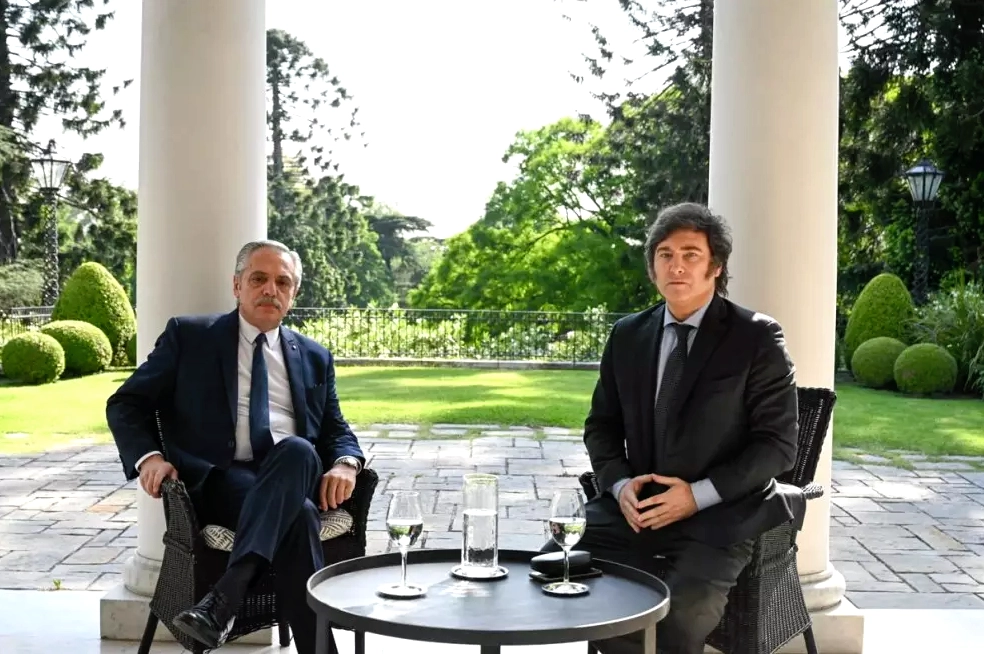On November 19, Argentines elected the President of the Nation for the next four years. In the midst of one of the most serious economic crises and the decomposition of the social fabric, Congressman Javier Milei, who is identified with the libertarian right and who has declared a break with the political class status quo, defeated the Minister of Economy linked to Kirchnerism, Sergio Massa.
In 1900, Argentina was the 13th economy in the world, while by 2022 the World Bank placed it at position 66. In the country, only 13 out of every 100 students complete their primary and secondary education in due time and form. On the other hand, formal employment fell by 5.6% between 2012 and July 2023, without considering the historical inflation rates due to the exchange control and the level of debt recorded by the Nation.
Argentina, with 46 million inhabitants and a gross domestic product (GDP) per capita of US$ 26,074, similar to that of Costa Rica, Maldives, or Serbia, had to choose between a candidate offering good political offices, governability, and accommodation in social spending and a disruptive candidate who draws national and international attention for his radical positions regarding the role that the state should play in the life of Argentines.
However, in a resounding vote and citizen participation similar to the previous process, Javier Milei was able to win the election with about 12 points of difference and three million votes. Argentines decided between change or continuity. For those who understand local politics, the sum of the alliances between Milei and former President Mauricio Macri summarizes the triumph of the latter and the historical defeat of Cristina Fernández de Kirchner. It is not known if this is the end of the political life of the controversial former president.
Now comes the most complicated part for Javier Milei: to fulfill his campaign promises, which include closing the Central Bank and dollarizing the economy, eliminating ministries and privatizing public companies, among others. However, several of these reforms will need the endorsement of Congress, where Milei’s strength is not enough to carry them out. Therefore, he will have to make a pact with the Together for Change Party and some smaller parties.
Beyond fanaticism, left or right, Argentina took to the streets because of the exhaustion of a system, of a form of government, which has plunged the economy to levels never seen before, where the social deterioration is impressive. This scenario complicates the new government, which will have to generate immediate adjustments to counteract inflation levels, maintain and attract investments, as well as generate a payment mechanism for the constantly contracted debt.
The day after the election, Argentine companies listed on the U.S. stock exchanges suffered a significant appreciation in their share prices. In addition, the country’s risk fell to the lowest levels of the last two months, which could serve as a reference to a very difficult but possible economic recovery.
There will be moments of intense corporate conflict, where unionism will surely try to “stop” the country. Javier Milei will have to calm down and adopt the figure of a head of state, as well as put together a team to take care of the economy and governability. It will be necessary to make the government smaller without hurting social spending, adding the need to generate jobs and pay loans. Nothing is easy for the national government and the Argentine people.
Javier Milei will have to look for allies abroad, adopting the climate agenda and the commitments of Agenda 2030, rebuild the relationship with the Vatican, and build bridges of understanding with the governments of the region, especially Brazil, where Argentina has the highest income from trade.
The new president of the Nation will have to take care of the rights agenda, which does not accept regressions. Tolerance and plurality will play a key role in the vision of the state that Argentina requires at this moment.
It is important to highlight that the Argentinean electoral system must be reviewed in-depth, as it requires an in-depth modernization, which mainly favors the fairness of campaigns and elections. Days before Election Day, the non-governmental organization Electoral Transparency (ET) published a study revealing the inequity in the contest, especially in the use of public resources to favor a specific candidate.
It would be satisfactory if, in this sense, the new government proposed reforms such as the separation from office to be able to obtain a candidacy and campaign, and the use of a single ballot and electronic voting media.
Another essential feature to be highlighted is that the electoral justice will have to allow international electoral observation. Argentina is a country that does not allow this practice, which prevents institutions such as the Organization of American States (OAS), Electoral Transparency (ET), or the European Union (EU) from immersing themselves in the electoral process.
*Translated by Janaína Ruviaro da Silva from the original in Spanish.











